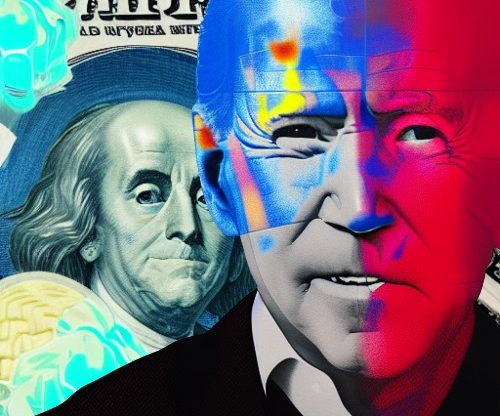Andrew Hollenhorst, chief U.S. economist at Citi, predicted on CNBC Thursday that the American economy is headed for a recession, citing inflation and credit card delinquencies.
The Consumer Price Index rose by 3.1% year-over-year in January, exceeding a predicted 2.9%, while credit card delinquencies of 90 days or more reached 6.36% in the fourth quarter of 2023. Hollenhorst told CNBC host Sara Eisen that he did not believe that data pointed to a “soft landing” for the U.S. economy.
“There’s this very powerful and seductive narrative around this being a soft landing and we’re just not seeing it in the data. I think that’s what we’ve seen over the past couple of days,” Hollenhorst told the “Money Movers” co-host. “We have inflation that’s running too high, the activity data is more debatable. January, you have some big seasonal factors, so I think that’s part of why markets are a little bit skeptical of these numbers, but it was a pretty big decline in retail sales that we saw this morning.”
Eisen pushed back on Hollenhorst, noting that Gross Domestic Product, which increased 3.3% in the fourth quarter of 2023, appeared strong and that January retail sales were affected by weather and returned holiday presents.
WATCH:
“The question is, where are these forward-looking indicators showing us that we’re going to go? We just got a really strong jobs report, over 350,000 people hired, but within that jobs report, the number of hours that people are working is going down, the number of full-time workers is going down, in certain sectors, like restaurants, you’re not seeing that hiring,” Hollenhorst said.
“I think that’s the key to the economy, is what happens in the labor market,” Hollenhorst continued. “If the unemployment rate stays low, people continue to spend, the economy holds up. But if that unemployment rate starts rising, and we think it will, and I think we saw that in continuing jobless claims this morning, that’s the sign we’ll have a more material decline in activity in the U.S. economy.”
Hollenhorst also noted that the data on credit card delinquencies suggested that people were exhausting their savings.
“I think we see that in the data, particularly in the credit card delinquency data. We just got some new data on that out last week, and you see those delinquencies that are rising,” Hollenhorst said. “What that’s telling is that there may be some consumers that still have excess savings, but those consumers that are exposed to floating rate credit card debt at much higher rates now, that have been pulling on those excess savings to continue to consume, continue to spend, now those delinquencies are picking up. So I think you are starting to see that weakness in the data.”
“I think if we get this slowing in the economy, then that probably will bring down inflation,” Hollenhorst added. “What I’m really pointing to here is that a soft landing is the least likely scenario.”
















